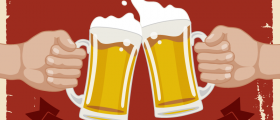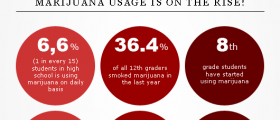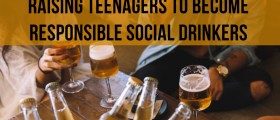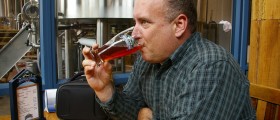
Drinking in Young Age
Alcohol has been a very popular drug among teenagers and young adults, while underage drinking is one of the main public health issues in the US. There has also been a growing number of instances of alcohol dependence among adolescents in the US. Other numerous studies have confirmed that teenage binge drinkers are much more likely to engage in drug abuse, promiscuous sex as well as have low grades in school. In addition, as adolescence is a particularly challenging period of life many individuals face the changes with the help of alcohol. As the brain is still developing well past the teenage years binge drinking at an early age leaves adverse effects on brain functionality. Teenage years are a period in life when individuals are tempted to experiment with novel and risky situations and as a result involve themselves in alcohol use and abuse. In addition, the effects of alcohol differ from individual to individual and those who have had many positive experiences with alcohol are more likely to engage in frequent alcohol use compared to people who have had negative or mediocre experiences. The individuals’ expectations of alcohol have a strong influence on whether they enjoy alcohol consumption or not. Those who find it pleasurable more often drink, while those who dislike it will avoid it. Researchers claim that people form beliefs about alcohol very early in life and act on them later on. The younger the child the more negative views he or she is likely to hold about alcohol drinking. However, during the early puberty years the attitudes change into positive. Further, many research articles show that adolescents are able to tolerate larger amounts of alcohol before the first adverse elements are felt, which in turn makes them more capable to engage in binge drinking compared to other age groups. In addition, young people seem to respond to the positive effects of alcohol more so than older individuals. Notwithstanding, young people who engage in excessive alcohol drinking in many cases have various types of psychological issues, such as depression, aggression, hyperactivity as well as anxiety. Behavioral problems, such as acting out, having difficulty dealing with authority and involvement in destructive behavior are traits often shared among teenagers who excessively use or abuse alcohol. Many experts postulate that aside from the psychological problems that make individuals predisposed to alcohol abuse, the tolerance for drinking is also believed to be a hereditary trait. Having parents who are more tolerant to alcohol in comparison to their peers makes the children more likely to be just as tolerant compared to the members of the general population.
Health Risks of Underage Drinking
Although young individuals who drink large amounts of alcohol do not develop severe health problems as do adults, there are still numerous medical concerns. Many research studies have found adverse consequences of underage drinking on the cognitive and memory abilities later on in life. As expected, there has also been evidence of liver damage, especially in young people with a weight problem who drink substantial amounts of alcohol. There is also a strong possibility of hormonal imbalance problems as the endocrine system is in full effect during puberty and alcohol only hinders its functionality. Alcohol drinking interferes with the development of muscles, bones, and various organs.
Statistical Data on Underage Drinking
Up to 5,000 individuals die annually from consequences of underage drinking in the US. It should be noted that the number of deaths caused by automobile accidents combined with the number of deaths which result from homicides in the US do not exceed 5,000. In addition, there have been many research articles, clinical studies, and surveys investigating the problem of underage drinking. Many of those have found that more than 75 percent of grade 10 and 12 students have consumed alcohol at some point in their lives. One of the main problems with underage drinking is the fact that large amounts of alcohol are consumed at once. An MTF survey showed that up to 30 percent of high school students have engaged in binge or heavy drinking in the past 2 weeks. Binge drinking is primarily defined as elevating the blood alcohol level to 0.08 percent. In order for an adult male to reach such blood alcohol level he needs to consume up to 5 drinks in 2 hours, while an adult woman can reach such levels by consuming 4 drinks in 2 hours. Further, there has been an increase in the first usage age among teenagers in the past 30 to 40 years. A few decades ago individuals had had their first drinks at around the age of 17, while now they first consume alcohol at 14. Experts believe that individuals who start drinking before 15 years of age are 4 times more probable to be clinically considered alcoholics at some point in their lives compared to the general population.

















Your thoughts on this
Loading...